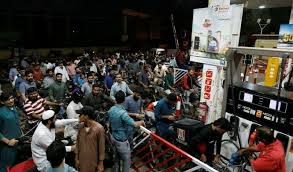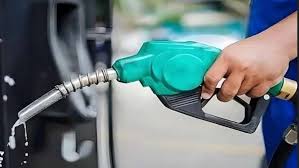Article:
Introduction
BHUBANESWAR: In a big step to provide relief to common man, the state government on Wednesday cut prices of petrol by Rs 42.4 per liter. The huge reduction too comes at a critical moment as oil prices fluctuate at twice the rate that is felt internationally and the few rupiah that were in your bank account are being stretched thinner and thinner to keep pace with inflation. The announcement, which forms part a larger economic stabilization strategy, comes as good news for the country and has received much individual and stakeholder approval.

Background and Context
The government didn't just slash the price of petrol. This is a whole series of measures being developed by government to manage the economy. This adjustment follows the trend of falling oil prices in mid-2014 and seeks to cushion any negative impact on domestic users that may result from global financial turbulence. Consequent on international factors such as world crude prices, and the international exchange rate that can enter into every gas-starved nation's equation, the price of petrol in this country has been going up and down like an electrical wigma. Currency appreciation has meant that people have been getting cheaper oil (in Yuan, not US dollars). This decline in the tax burden resulted in slight price fluctuations for domestic consumers--petrol prices, measured in dollars US per gallon would vary from month to month too because of other factors I just cited. Therefore, you could call it an all-over-the-map policy.
Impact on the Economy
Consumer Relief
On one hand, it provides immediate consumer benefits: Brought to you by the price cuts Petrol being the primary source of power for majority of the people in daily life if the price of petrol is decreased it will lower the transportation cost and this may impact the goods and services. To your average citizen, this translates into more money to spend on themselves and a higher quality of life.
Inflation Control
The government wants to tame inflation by lowering petrol prices. Transportation costs are a big component of total cost of goods and services. Transportation costs decrease that helps stabilize prices of virtually everything, but Pentagon and Soviet Union. The move is also aimed at reducing the inflationary pressure and creating a more stable environment for the economy.
Advantages for business and industry
For businesses, particularly those that are highly dependent on transportation like those in the logistics and manufacturing sectors, cheaper petrol means decreased expenses to their bottom line. This can make profit margins better, and can, in turn, bring the cost-down for the consumer. It also increases the competitiveness of local businesses in the global market.
Government's Strategy
Economic Stabilization
The move by the government is part of the larger economic package being developed to stabilize the economy. A decrease in petrol costs would help boost the economy with more consumer spending and reduced business expenses, according to the government. This is expected to bring growth to the country and make it a better economic environment.
Community Assistance for Impacted Sections
The reduction will also benefit specific sectors of the economy such as agriculture and public transport, which are highly exposed to changes in fuel prices. Decrease fuel costs will dampen the operational costs of these sectors to facilitate their sojourns-temporarily aiding them (and the wider economy) stability.
Challenges and Considerations
Maintaining Prices Low
This is a welcome step in cutting down the petrol prices but worries persist over whether such measures are sustainable. It is the responsibility of the government to ensure that such revenue losses should not amount to fiscal imbalances. Budgets will be stretched with falling oil prices, on how to maintain this growth and continue to support vital services, as well as much-needed infrastructure development.
Worldwide Oil Market Instability
Due to the oil market's infamous unusualness, changes might be fundamental because of future worth variances. To keep up with monetary solidness, the public authority ought to keep on being watching out and ready to answer switches in the cost of oil up the globe.
Responses from General society and Accomplices
The overall population and many accomplices have predominantly embraced the decrease in petrol costs. While associations have invited the choice for of decreasing functional expenses, occupants have communicated help at the possibility of diminished fuel bills. Monetary specialists have noticed that whenever took care of appropriately, this choice might have good long-haul impacts.

Conclusion
The decrease of petroleum costs by Rs. 42.4 per liter is a critical move by the public authority pointed toward giving financial help and settling the economy. This choice is supposed to help customers, control expansion, and backing organizations. In any case, the public authority should cautiously deal with the financial ramifications and stay versatile to worldwide oil market changes to guarantee the supportability of these advantages.






